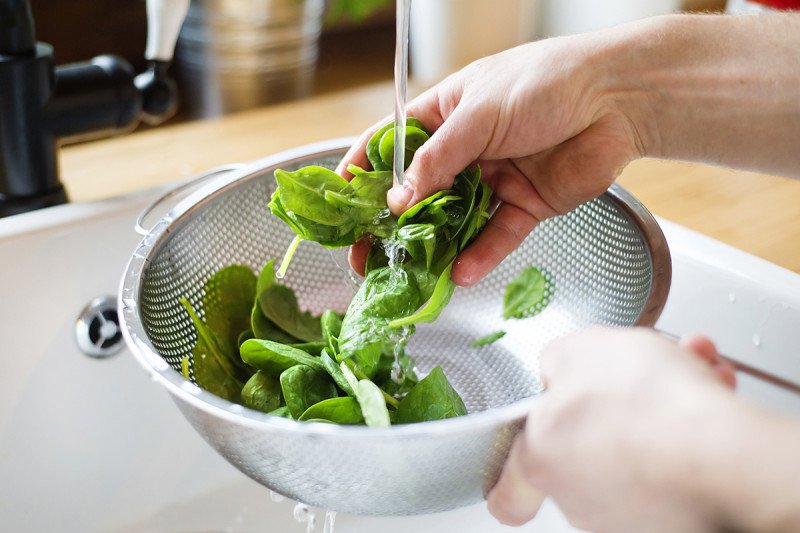
People who have stem cell and bone marrow transplants face many challenges. One obstacle that is often overlooked is the difficulty that many of them have eating well during and after the transplant process.
Now there is a new focus on nutrition during transplants, especially at Memorial Sloan Kettering. In fact, MSK researchers are leading work showing the role that a healthy diet plays in recovery. They are developing unique ways to help people who are having transplants maintain good nutrition.
We spoke with Marissa Buchan, a research nutritionist who works exclusively with the bone marrow transplant team, about how MSK is using science to ensure that patients have proper nutrition.
Why is it so hard for people undergoing transplants to eat a healthy diet?

There are several reasons why it’s challenging to eat a healthy diet while having a transplant. One is that they generally just don’t feel well, which decreases their appetite. On top of that, they often experience side effects of the treatments they are given, such as nausea, vomiting, diarrhea, or sores in the mouth and throat that can make eating difficult or painful.
Another big problem is that people undergoing transplants often report that their sense of taste has changed. Chemotherapy can affect the taste buds and other cells inside the mouth. This is something that we’ve known about for a while, but no one has ever done research to quantify it or to figure out what to do about it.
Can a change in taste be measured?
We’re starting to look at it. As far as we know, we’re the first ones ever to do so. Sergio Giralt [Chief of MSK’s Adult Bone Marrow Transplant Service], myself, and several others are conducting a study to measure which specific tastes are upset in people undergoing autologous transplants [transplants using their own blood stem cells].
We’re giving patients taste tests and using chemistry techniques to measure which flavors seem to have changed. Certain flavors may be lost. Others may become stronger. These changes can happen right away or down the road. Not only do we not know which specific flavors are involved but no one has ever studied how long it takes for these problems to get better. We also measure other factors related to taste, such as the amount of saliva produced and the bacteria in the mouth.
We don’t have any answers yet, but we’re starting to get good information. Our hope is that we can find new ways to develop a personalized diet for each person based on their individual taste changes and symptoms.
Why is maintaining good nutrition during a transplant so important?
I am currently leading a study to understand how diet affects the microbiota. This is the balance of microbes that live in the intestinal tract. I presented what I’ve found so far at the American Society for Blood and Marrow Transplantation’s annual meeting in February 2018.
Earlier studies done at MSK showed that the makeup of gut bacteria had a huge impact on outcomes after transplant. This included relapse, survival, and the development of graft-versus-host disease (GVHD). GVHD is a potentially fatal side effect in which the new blood cells attack the patient’s tissues. For example, the team found that if people maintain the naturally occurring intestinal bacteria Blautia, they are less likely to develop GVHD. The researchers discovered that Blautia is sensitive to the antibiotics that people are given during the course of treatment. It also declines in those who aren’t eating.
Our latest research is digging deeper into the role of nutrition in the maintenance of a healthy, diverse microbiota. We have found that people who eat fewer calories have decreased diversity in their intestinal flora. This decline happens even if they are not taking antibiotics. Our discovery shows the importance of maintaining a varied diet after a transplant. This practice can keep the gut active and preserve important flora, like Blautia.
What is MSK doing to change the way people who have transplants eat?
Because transplants increase the risk of infection, in the past we’ve recommended a low-microbial diet. This meant very few fruits and vegetables. Everything had to be well cooked. But our nutrition team came to realize that this diet was unnecessarily restrictive. After much review, we changed our official dietary recommendations last summer.
Our transplant patients are now allowed to eat raw fruits and vegetables, as long as they’re washed well. This diet gives them more options to maintain a healthy, varied diet while still emphasizing food safety to minimize the risk of foodborne illnesses.
In addition, nutrition has become an integral part of care at MSK. Everyone on the care team is focused on getting patients to eat, since they realize how important it is. During the transplant process, we tell patients that eating is one of their jobs.
Are there any long-term issues that transplant survivors face related to diet?
Bone health can be a problem for some survivors. We recommend diets that are high in calcium, vitamin D, and other nutrients.
Other survivors may have changes in their metabolism that lead to diabetes or obesity. Our clinical dietitian-nutritionists and other experts can work with them to help maintain a healthy diet and lifestyle.
What’s your favorite recipe to give someone who is recovering from a stem cell transplant?
Our nutrition service has developed a whole menu of smoothies and other healthy recipes for people having cancer treatment, depending on their symptoms. One smoothie that’s especially good for people with GVHD is the apple pie smoothie.
These smoothie recipes are great for anyone having cancer treatment. In particular, those who may be experiencing nausea or diarrhea as a side effect of chemotherapy may find them helpful.





